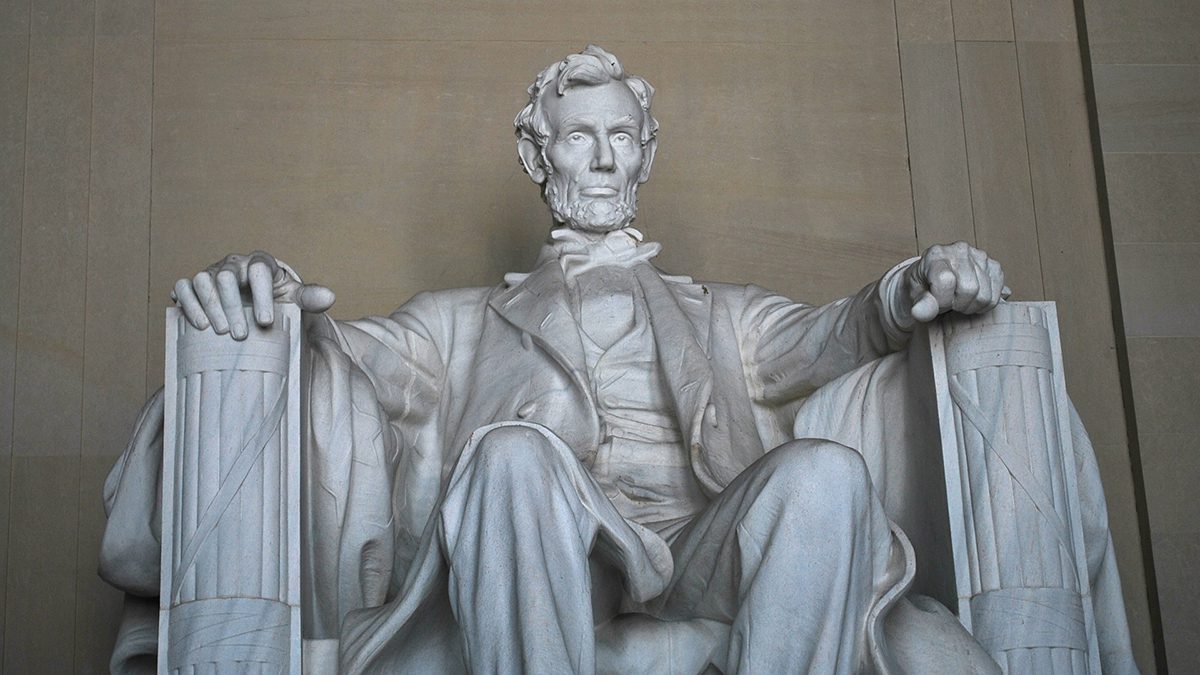The president-elect had planned to take a public, victory train trip into Washington for his inauguration. Instead, his protectors had him travel securely and unseen.
Sound like Joe Biden this week? It was, but it was exactly the same scenario for Abraham Lincoln in 1861.
The parallel goes even further. Both times, massive military protection guarded the new president’s inauguration. Both times, the president took office in the wake of civil strife – the Capitol insurrection in 2021, and the secession of South Carolina and six other states 160 years earlier.
Both presidents assumed leadership of a country badly divided. About half of the Republicans believe Democrat Biden stole his election from Donald Trump. Even before Lincoln, the first Republican president and an opponent of slavery, took office, four more states moved toward secession.
Biden followed Trump and Lincoln succeeded James Buchanan. Both Trump and Buchanan were divisive one-termers who may end up with history’s lowest presidential ratings.
Both new presidents sought national unity. In his first Inaugural Address, Lincoln stressed that he did not seek to end slavery in states where it existed. He later agreed to a proposed constitutional amendment to guarantee slavery’s survival. He drew the line only against a state quitting the Union.
Despite his attempts to reassure the southern states, Lincoln failed to prevent secession and the Civil War. Attempting to appease the opposition would not work. In his second Inaugural Address, Lincoln recalled his failed efforts, ruefully concluding, “and the war came.” Lincoln’s attempt at appeasement is a lesson for Biden.
Biden can also learn from more recent experiences. Barack Obama made one-sided concessions to the Republicans. Instead of naming a strong liberal, he nominated moderate Merrick Garland to the Supreme Court. The GOP would not even give him a hearing. Similarly, Bill Clinton made concessions but could not avoid impeachment.
With only a slim Democratic majority in Congress and some Republicans seeming to regret the insurrection inspired by Trump, this year may provide the proper conditions for compromise. While deals with the GOP might not fulfill the Democrats’ agenda, they could provide the basis for restoring unity.
Biden said in his Inaugural Address that he will try for unity and to work with the GOP. But it’s not really up to him. Will Republicans in Congress recover their traditional responsible conservatism and negotiate deals or will they remain dominated by Trumpers for whom politics is combat?
In the first vote of the new Congress, 10 GOP senators opposed the first Biden nomination. These are the hardcore Trumpers, for whom unity is not only impossible but unwanted.
Unity will only come if both sides are willing to adopt policies in which their disparate views are considered. Democrats control the national government so they have a right to set the agenda. If there are Republicans willing to negotiate in good faith, some of their concerns would be blended into the new laws.
First-term presidents are often considered to have their greatest power during their first year. Their mandate is fresh and they may enjoy their greatest congressional support. With that in mind and seeking to reverse many Trump policies, Biden plans to move forcefully and quickly. If the GOP is willing to work with him, he should react immediately.
But some Republicans insist Trump’s impeachment trial harms hopes for unity. They ignore the fact that continued GOP backing of Trump’s unproven claim that the election was stolen has made unity impossible. The passionate denial of Biden’s win undermines efforts for compromise.
If the GOP is ready to move from take-it-or-leave-it politics, Biden could risk disappointing the most liberal Democrats and try to achieve his objectives by accepting some limits favored by Republicans.
As the oldest president, he well knows the value of using the time you have, not waiting. That works against appeasement, which would likely be seen as a sign of weakness. But it could allow legislative deals on healthcare, the environment and the economy. Of course, strong action on COVID-19 is essential.
With more congressional experience than any president in 50 years, Biden appears to understand that the best way to get the other side to negotiate is by aggressively pursuing his program. That could gain the attention of Republicans better than appeasement.
When he could not get what he wanted from Congress or simply wanted to assert his power, Trump often took action on his own. He stretched the use of executive orders beyond traditional limits, often taking advantage of loopholes left in laws by a Congress more focused on fundraising than lawmaking.
Biden will now use the precedent set by Trump to undo Trump. If Congress wants to reassert its lawmaking powers, it needs to get its act together.
That requires cooperation between practical Democrats and reformed Republicans. It may not be unity but it’s the essential first step.







